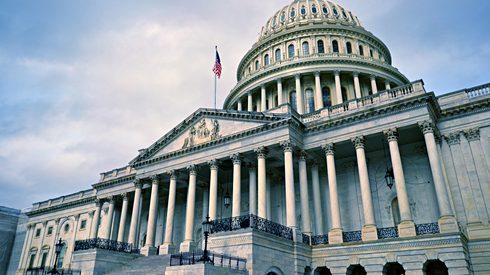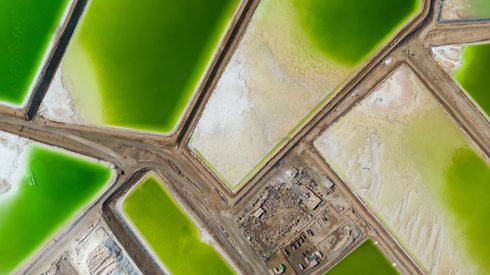Speaking to Fastmarkets in the wake of the election, the producers emphasized that much would depend on how the president-elect’s policy rhetoric materializes in his second term, agreeing that the policy impact “could go either way”.
Broadly, the producers questioned the potential impact of any future new or increased tariffs on imports from China, and downplayed a potential impact of the withdrawal of previous support for the electric vehicle (EV) and battery raw material supply chain in the US.
Tariffs
In his previous term between 2017 and 2021, Trump introduced wide-ranging tariffs on imports from China, under Section 301 tariffs including covering graphite – though broad exceptions were implemented for graphite supply.
In the re-election campaign, he has also threatened to introduce a higher rate on Chinese goods this term. The country is the leading producer of active anode materials globally.
Earlier this year, the US Trade Representative under Joe Biden announced that a 25% tariff rate on imports of natural graphite from China would come into effect from 2026, prompting opposition from some major US automotive companies. A removal of tariff exclusions for synthetic graphite was also announced earlier this year, making imports from China subject to the tariff.
But this figure pales in comparison to the 60% tariff Trump has threatened to introduce on imports of Chinese goods.
Trump’s close association with Tesla chief executive officer Elon Musk during his campaign has raised further questions, specifically over how we would prioritize original equipment manufacturer (OEM) sourcing requirements over potentially painful requirements for sourcing from developing non-Chinese supply chains.
And furthermore, in recent years Trump and the congressional Republican Party appeared to be flirting with repealing elements of the US legislative support for EV subsidies, which have proven a boon to battery raw material demand, posing concern in some other markets.
But producers pointed to the extensive financial support that has already been committed to projects under the Inflation Reduction Act (IRA) – Joe Biden’s landmark economic legislation – as minimizing the potential for a roll-back of its commitments for critical raw material supply chains and the EV sector.
“Under the IRA, billions and billions of dollars have already flowed to the EV sector, with much of that occurring in Republican states, so any changes to incentives would be sensitive to what has already been achieved to advance electrification and the energy transition,” Hugues Jacquemin, chief executive officer of Canadian graphite producer Northern Graphite, said.
A second producer targeting the US anode market also observed that much of the support assigned under the IRA was fairly long-dated, and a third said “the current geopolitical landscape signals that the concepts of the IRA will be continued by this next administration.”
Elongated OEM influence
And Musk’s strong support for Trump’s campaign poses further questions about the latter’s industrial policy priorities, particularly with regards to import tariffs.
“Elon Musk’s support of Trump’s re-election campaign is likely to afford him a place in Trump’s inner circle and all the influence that accompanies that,” Fastmarkets analyst Amy Bennett said, “we would therefore expect greater consideration around policy impacts on OEMs like Tesla.”
US automotive companies – including Tesla when the Trump administration first proposed a tariff on graphite imports from China in 2018 – have lobbied against the introduction of tariffs on Chinese graphite, arguing that domestic supply chains are insufficient to meet consumption.
The global supply of graphite anode material is overwhelmingly concentrated in China, making automotive producers particularly vulnerable to tariffs on imports from the country.
This has led some to predict that Trump will extend exceptions for tariffs on graphite imports, and potentially reintroduce exclusions on synthetic graphite.
“With regard specifically to graphite, we would expect that the Section 301 tariff exemption on synthetic graphite will be reinstated at some point next year,” Bennett said.
“We would also expect the delay to the implementation of FEOC requirements, specifically on graphite to be extended through Trump’s presidency, with the requirements potentially pushed back to 2029,” Bennett added.
Restrictions in sourcing graphite from countries designated Foreign Entities of Concern (FEOC), as China is, are currently due to come into effect from 2027.
US FEOC requirements exclude EVs containing specified materials produced in China from eligibility for 30D tax credits, which allow qualified buyers to save up to $7,500 on new clean vehicle.
“The caveat of course is that it remains to be seen how long Musk and Trump’s relationship will remain strong, considering that Trump’s inner circle saw extensive turnover during his previous administration,” Bennett added.
The second producer observed that the graphite market was already under significant pressure from automotive and cell maker lobbyists.
“So I’m not sure how much, if at all, graphite is worse off [now],” the second producer said.
There was a consensus that Trump’s industrial policy would be geared towards supporting domestic manufacturing, however, and some market participants told Fastmarkets that they would expect Trump’s support for domestic industry, particularly in the face of China, to be stronger than previously.
“From a China tariffs perspective, we would expect a Trump administration to continue to protect the growth of domestic industry from unfair competition from FEOCs like China… in fact, we expect Trump’s stance on China will be stronger than it is today,” Jacquemin said.
“Tariffs help to level the playing field, and we can only benefit from a stricter regime on imports/dumping of Chinese graphite,” he added.
This will make presence in geopolitical and geographic proximity to the US even more important, the producers agreed.
“I’m confident having a US operation is a competitive advantage in a more protectionist world,” the second producer said.
“For Northern Graphite in particular, as a Canadian company supplying US markets, under a Trump administration there may be more funding available to develop critical minerals in Canada that would be used in USA,” Jacquemin said.
Discover how the 2024 US election is impacting and could impact US and global commodity markets with Fastmarkets. Head to our US election hub.






